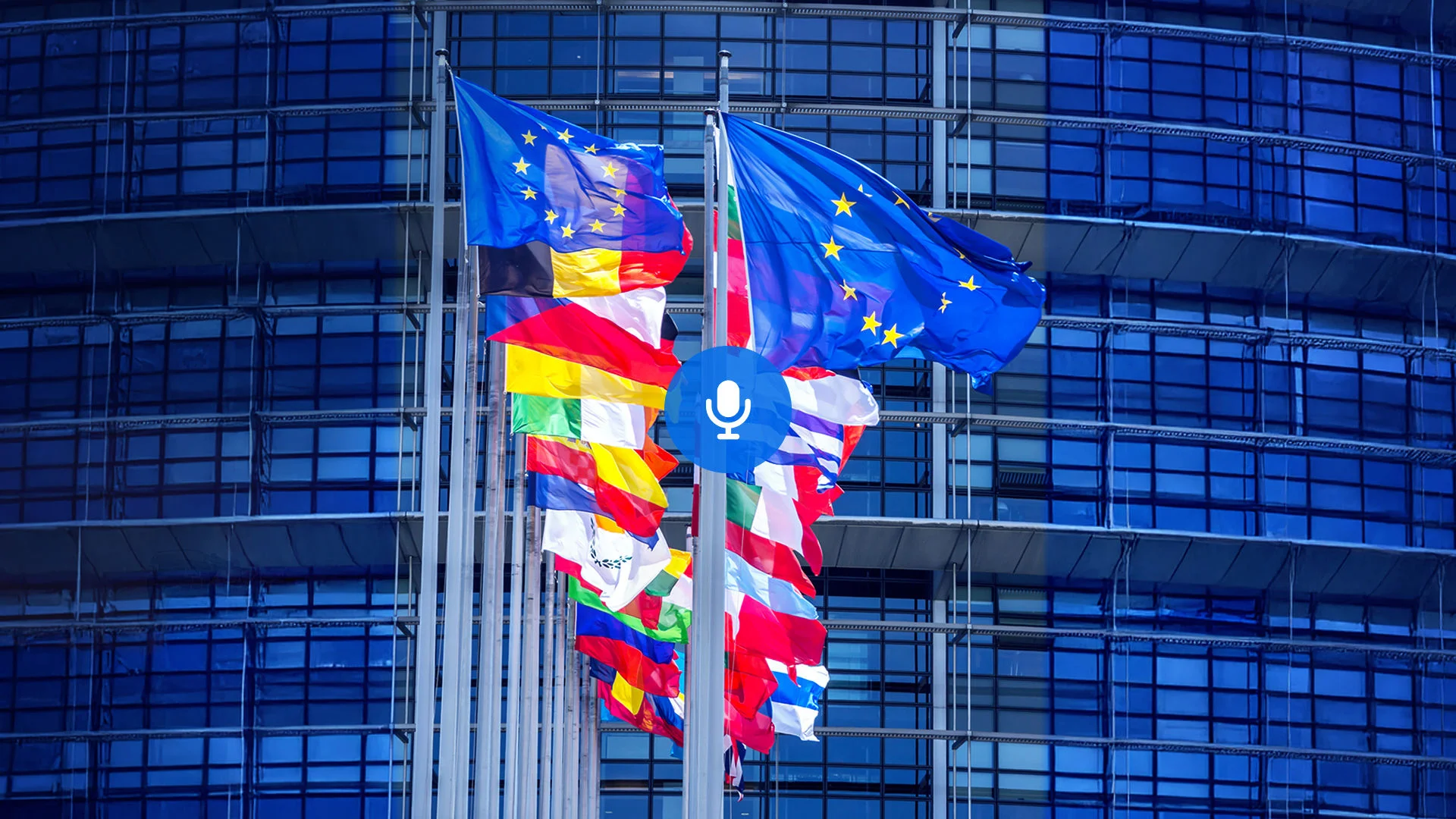A million-volt political shock has just flashed through German politics: in Thuringia the far-right Alternative fur Deutschland (AfD) party ‘won’ its first ever state election; in a simultaneous election in Saxony it only narrowly failed to nail a second victory. However, in focusing on the AfD’s success, the media headlines leave an incomplete picture. A second nationalist, anti-immigration party, Bündnis Sahra Wagenknecht (BSW), came third in both cases with double-digit shares of the vote. A year ago, the BSW did not exist. Together the AfD and BSW polled over 40% of the votes in both elections. The State of Brandenburg (surrounding the separate metropolitan area of Berlin, principal city Potsdam) is next to vote on 22 September; the AfD is currently leading with 24.6% and the BSW is fourth on 16.9%, another poll potentially heading for another 40%+ aggregate nationalist-supporting outcome.
This is a significant and humiliating repudiation of Chancellor Scholz’s ruling coalition. And while the conventional centre-right Christian Democratic Union (CDU) vote is holding steady, former Chancellor Angela Merkel’s old party has no cause for complacency about the underlying trends: it was on Merkel’s watch and arising from her policies that much of today’s angst finds its roots. It is deeply uncomfortable for Brussels too.
In Thuringia (central-eastern Germany, principal cities Jena and Weimar), at 32.8% of the vote the AfD alone won three times as many votes as the aggregate of the parties which comprise Scholz’s ruling federal Traffic Light Coalition: his own centre-left Social Democratic Party (SPD) fell to 6.1% (8.2% previously), the left-wing Greens scored 3.2% (5.2%) and the centre right Free Democratic Party (FDP) crumbled from 5.0% to 1.1%. The Greens and the FDP both lost all their seats in the state assembly. The nascent BSW made its debut with 15.8%. In Saxony (on Germany’s eastern border neighbouring both with Poland and the Czech Republic, principal city Dresden), the disparity was less pronounced but of no less concern, not least because only by a whisper did the conservative CDU (31.9%) manage to see off the AfD (30.6%) challenge. Again, the SPD (7.3%) and the Greens (5.1%) were left in the wilderness. The BSW took an inaugural 11.8% share.
The AfD has been in existence since 2013; initially dismissed as a far-right, anti-immigration, anti-Muslim, eurosceptic bunch of cranks with nasty views on foreigners and in no way representative of German mainstream values, it was hoped to be a short-duration fringe fad. History proves otherwise. It has steadily gained strength. Its roots were in the old communist East Germany and while its core support remains in the east, it has demonstrably built momentum nationwide. While it would be alarmist and misleading to extrapolate the recent results, nevertheless that it is now capable of not only challenging but winning the popular vote at the state level potentially anywhere in Germany will be viewed with great anxiety by liberal Germans; if they are surprised at its success, they should be looking as much at their own failings to understand why. Despite German youth unemployment at 6.6% being the lowest in the eurozone, of particular concern to the political establishment is the extent to which momentum particularly for the AfD is being driven by younger voters, notably the under-twenty-fives and the Millennials; the AfD was also more popular among women than men in the recent elections.
The AfD is now joined by a new left-wing nationalist challenger, the BSW
A new upstart nationalist challenge comes from the far left. Sarah Wagenknecht, formerly of Die Linke (‘The Left’ party) and certainly not shy in coming forward under her own banner, broke away from Die Linke to create a new eponymous movement in September 2023 (BSW: Bundnis Sarah Wagenknecht, literally the Sarah Wagenknecht Alliance, strapline ‘Reason and Justice’). Born in Jena, she is an East German communist with an Iranian father and a German mother. Her political ideology remains Leninist/Marxist: she is described as Big State, firmly anti-capitalist, is in favour of heavily taxing the wealthy and the middle classes and is strongly about protecting workers’ rights. But different from the core “workers of the world unite” philosophy of traditional international Marxism, Wagenknecht is equally firmly a highly vocal German nationalist, reportedly strongly anti-NATO and pro-Russian and, with no sense of irony given her roots, anti-immigration.
Wagenknecht is a smart, well-turned-out, conservative-looking reactionary. A familiar face on the national political scene, she has been a member of the Bundestag since 2009. The constituency she is appealing to is the disaffected, working class cohort who despise the bourgeoisie and who are disillusioned with the Berlin establishment obsessed with the European project. Her former caucus in Die Linke is clearly her key target for votes but she is also tapping into to a much wider populist seam with strong nationalist and anti-immigration sympathies.
In these columns we often refer to the populist polarisation within European politics. It is a moot point whether in Germany today the far-right AfD and the equally far-left BSW are polar opposites, or are more accurately a case of the two poles bending to meet round the back of the same circle.
German nationalism: echoes of the 1920s?
Germany today is different from Germany of the 1920s when nationalism fomented and became a virulent racist poison expressed through Nazism: it is a mature, developed democracy with 80 years of pedigree under its belt, albeit only 30 years as a post-Cold War reunified country. It has not just recently started and lost a world war and been humbled with enforced penury and national humiliation by the victorious Allied powers; instead it is the world’s fourth biggest economy and a founder and cornerstone member of both NATO and the European Union.
But there are obvious fragilities. It is showing signs of economic stagnation despite being the centre of gravity for the European economic project for so long. Even if a case of perception becoming reality, economic and social divisions and resentments persist between the two halves of the pre-1990 Germany, the western Federal Republic and the Soviet-oriented Democratic Republic. Today, Olav Scholz’s is the weakest, least effective, least popular Chancellorship for decades and his unlikely SPD/FDP/Green coalition just about manages to remain intact while lurching from crisis to crisis (it is worth remembering that nearly three years ago there was a foiled attempt at an armed coup to take over the Bundestag). Immigration is a deeply divisive political issue which Germany is struggling with just as much as we are in the UK, or Italy, France and many others are too. The AfD in particular is making big political capital not just out of being anti-immigration but also being in fundamental opposition to the route by which Germany meets its 2050 carbon net-zero targets; its constituency is expanding as it makes inroads westwards from its former East German heartland.
The risk of feeding the democratic deficit
Proportional representation as an electoral model seldom produces a clear, clean outcome. Frequently, to break political deadlock in elections which have an inconclusive result, unholy alliances are formed among unlikely political bedfellows. Some are effective and enduring coalitions, others not. Where politicians can evoke a backlash is when they conspire to frustrate a democratic result. In the case of Thuringia, Olav Scholz has declared that there must be a ‘firewall’ coalition brought about explicitly to keep the AfD out of government. Is that even possible? Winning 32 of the 88 seats in the State house, the AfD was the clear winner but not sufficiently to gain a majority. But Scholz’s ‘firewall’ would require every other party forming a unified coalition to thwart the AfD having any role in government; to have the requisite 45-seat majority to form a functional legislature, that coalition would of necessity need to include the conservative Christian Democrats (23), the Marxist Die Linke (12) and the centre-left Social Democrats (6); that still leaves it short of an outright majority, giving the BSW the balance of power, a party as nationalist as the AfD (which surely defeats the object of the exercise) and the one which has just divorced itself from Die Linke. When the most popular party and its electors sniff a political stitch-up to keep it out of office, resentment is only heightened. Realistically, how long can you keep them out? Other than by taking constructive arguments to the electorate and winning the debate to the contrary, you see the problem here.
The investment perspective
From an investment perspective, even if not as problematic as France, Germany’s political travails spill into our direct investment sphere of economic and geopolitical interest. With the federal government under considerable pressure to cut spending to maintain a legal budget, two of the casualties are defence, where the promised real-terms expenditure increases to repair Germany’s military capability deficit are no longer available, and aid for Ukraine which Scholz has halved from the original plan in the knowledge that populists would agree.
Political trouble is not the sole preserve of Germany in the eurozone. Populism among the French electorate at the summer EU elections spontaneously prompted President Macron to face down his critics on the far right under Marine Le Pen in an unforced premature national general election; it backfired with the ultra-left gaining the most votes at the expense of the political centre ground. Two months later, France still has no government (nor for that matter does Belgium also more than two months since its national election), though at least it now has a prime minister. Without the appointment of the EU’s former Brexit negotiator Michel Barnier to the position this week, the situation in France was becoming acute. His task is unenviable: amid a myriad of entrenched, polarised, warring and irreconcilable political factions, to weld a workable administration capable of addressing France’s torpid economy and repairing its awful finances.
As you have heard us describe in previous columns, France is one of the most indebted nations on earth with more than €3.2 trillion of debt, ten percent greater than its economy, and a deficit/GDP ratio of 5% rising to 6% next year, double the maximum permissible under eurozone rules. In July it was served a preliminary disciplinary warning from the EU Commission that it faces financial penalties if it does not comply with Brussels’ financial stability rules (penalties could be either direct fines or access to financial aid programmes e.g. the Covid Recovery Fund, being withheld). Along with six other countries (Italy, Belgium, Malta, Slovakia, Hungary and Poland) also in breach of EU fiscal rules, France has been ordered to ‘consolidate’ its government expenditure which, in normal language, means making extensive cuts in public spending. It is legally required to produce a compliant budget for presentation to the Commission next month. As we have pointed out before, the only policy area the left and the right can agree on is reversing Macron’s pension reforms, the cost of which analysts estimate would push the French deficit to more than 10% of GDP. As it is there is currently no mechanism for such a budget to be prepared, debated, agreed upon and presented with the authority of the French parliament. Barnier’s first imperative therefore is to find people from across the spectrum who will set aside their differences to work with him and work with each other in the greater national interest. It is not insuperable but in the current febrile atmosphere it is a big ask.
Who’s bluffing whom?
In these games of horse trading and multi-layered poker with high stakes, the markets are remarkably sanguine. The relatively muted reaction in the eurozone’s principal bond yields and its currency says that the markets reckon the chance of Brussels imposing delinquency sanctions against France or Italy is virtually nil, especially when there are powerful eurosceptic undertones in both countries and the anti-EU political mood in Germany is demonstrably deteriorating. They are also banking that were the situation to deteriorate to such an extent that the difference in yield between French government bond and their German counterparts began to head towards the critical two percentage-point premium regarded as posing a systemic risk, the European Central Bank’s anti-fragmentation mechanism would automatically kick in to contain the problem.
That, however, does not make the problem go away. To mangle metaphors, it merely kicks the can down the road until the next time the wheels drop off, which they almost inevitably will, by which time the situation is likely to be worse than better. Failing fully to address the issue now might be political reality, but it does beg the question: what is the point of a rule book if a) nobody is bothered much about following it and b) in the event the rules are broken, the authorities are not committed to exacting the required penalties?
Populism: subversion or democracy?
As for the EU itself, the project remains half-baked with in-built systemic fault-lines. The political union which is the prerequisite for fiscal union, which in turn is needed to match the existing monetary union to create a homogenous, fully-formed social, economic and financial construct remains a pipe-dream for EU integrationists. What exists today in the eurozone and the wider EU is something we all live with: a structure which is becoming permanent but which remains incoherent and which absorbs enormous time, money and energy holding itself together, all of which could be used more profitably elsewhere to maintain its global competitiveness. No rational person would invent the EU in its current format and of course it was never intended to be this way. Therein lies the political conundrum: as a half-completed political project, it cannot go backwards without frightening financial and social consequences, and it seems incapable of going forwards to what ought to have been its natural completion.
That the Brussels establishment so frequently uses defensive, patronising and inflammatory language in the context of populists, those in the dictionary definition who see themselves as ignored by the elite to the point of effective disenfranchisement, merely demonstrates they have little or no understanding of what the word means and why they are losing the argument.
The Jupiter Merlin Portfolios are long-term investments; they are certainly not immune from market volatility, but they are expected to be less volatile over time, commensurate with the risk tolerance of each. With liquidity uppermost in our mind, we seek to invest in funds run by experienced managers with a blend of styles but who share our core philosophy of trying to capture good performance in buoyant markets while minimising as far as possible the risk of losses in more challenging conditions.
The value of active minds: independent thinking
A key feature of Jupiter’s investment approach is that we eschew the adoption of a house view, instead preferring to allow our specialist fund managers to formulate their own opinions on their asset class. As a result, it should be noted that any views expressed – including on matters relating to environmental, social and governance considerations – are those of the author(s), and may differ from views held by other Jupiter investment professionals.
Fund specific risks
The NURS Key Investor Information Document, Supplementary Information Document and Scheme Particulars are available from Jupiter on request. The Jupiter Merlin Conservative Portfolio can invest more than 35% of its value in securities issued or guaranteed by an EEA state. The Jupiter Merlin Income, Jupiter Merlin Balanced and Jupiter Merlin Conservative Portfolios’ expenses are charged to capital, which can reduce the potential for capital growth.
Important information
This document is for informational purposes only and is not investment advice. We recommend you discuss any investment decisions with a financial adviser, particularly if you are unsure whether an investment is suitable. Jupiter is unable to provide investment advice. Past performance is no guide to the future. Market and exchange rate movements can cause the value of an investment to fall as well as rise, and you may get back less than originally invested. The views expressed are those of the authors at the time of writing are not necessarily those of Jupiter as a whole and may be subject to change. This is particularly true during periods of rapidly changing market circumstances. For definitions please see the glossary at jupiteram.com. Every effort is made to ensure the accuracy of any information provided but no assurances or warranties are given. Company examples are for illustrative purposes only and not a recommendation to buy or sell. Jupiter Unit Trust Managers Limited (JUTM) and Jupiter Asset Management Limited (JAM), registered address: The Zig Zag Building, 70 Victoria Street, London, SW1E 6SQ are authorised and regulated by the Financial Conduct Authority. No part of this document may be reproduced in any manner without the prior permission of JUTM or JAM.









